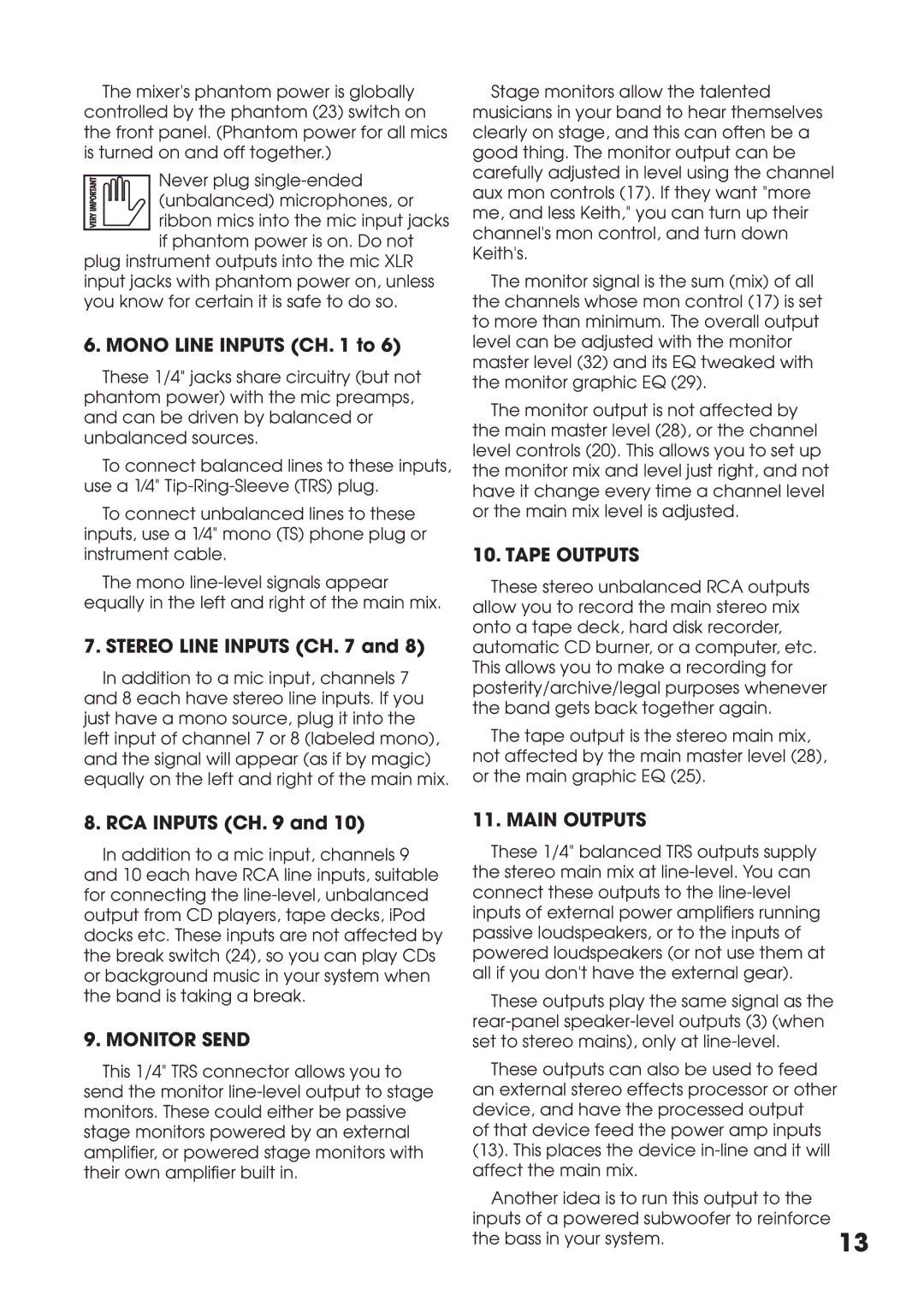The mixer's phantom power is globally controlled by the phantom (23) switch on the front panel. (Phantom power for all mics is turned on and off together.)
![]() Never plug
Never plug
(unbalanced) microphones, or
ribbon mics into the mic input jacks if phantom power is on. Do not
plug instrument outputs into the mic XLR input jacks with phantom power on, unless you know for certain it is safe to do so.
6. MONO LINE INPUTS (CH. 1 to 6)
These 1/4" jacks share circuitry (but not phantom power) with the mic preamps, and can be driven by balanced or unbalanced sources.
To connect balanced lines to these inputs, use a 1⁄4"
To connect unbalanced lines to these inputs, use a 1⁄4" mono (TS) phone plug or instrument cable.
The mono
7. STEREO LINE INPUTS (CH. 7 and 8)
In addition to a mic input, channels 7 and 8 each have stereo line inputs. If you just have a mono source, plug it into the left input of channel 7 or 8 (labeled mono), and the signal will appear (as if by magic) equally on the left and right of the main mix.
Stage monitors allow the talented musicians in your band to hear themselves clearly on stage, and this can often be a good thing. The monitor output can be carefully adjusted in level using the channel aux mon controls (17). If they want "more me, and less Keith," you can turn up their channel's mon control, and turn down Keith's.
The monitor signal is the sum (mix) of all the channels whose mon control (17) is set to more than minimum. The overall output level can be adjusted with the monitor master level (32) and its EQ tweaked with the monitor graphic EQ (29).
The monitor output is not affected by
the main master level (28), or the channel level controls (20). This allows you to set up the monitor mix and level just right, and not have it change every time a channel level or the main mix level is adjusted.
10. TAPE OUTPUTS
These stereo unbalanced RCA outputs allow you to record the main stereo mix onto a tape deck, hard disk recorder, automatic CD burner, or a computer, etc. This allows you to make a recording for posterity/archive/legal purposes whenever the band gets back together again.
The tape output is the stereo main mix, not affected by the main master level (28), or the main graphic EQ (25).
8. RCA INPUTS (CH. 9 and 10)
In addition to a mic input, channels 9 and 10 each have RCA line inputs, suitable for connecting the
9. MONITOR SEND
This 1/4" TRS connector allows you to send the monitor
11. MAIN OUTPUTS
These 1/4" balanced TRS outputs supply the stereo main mix at
These outputs play the same signal as the
These outputs can also be used to feed
an external stereo effects processor or other device, and have the processed output of that device feed the power amp inputs (13). This places the device
Another idea is to run this output to the |
|
inputs of a powered subwoofer to reinforce | 13 |
the bass in your system. |
